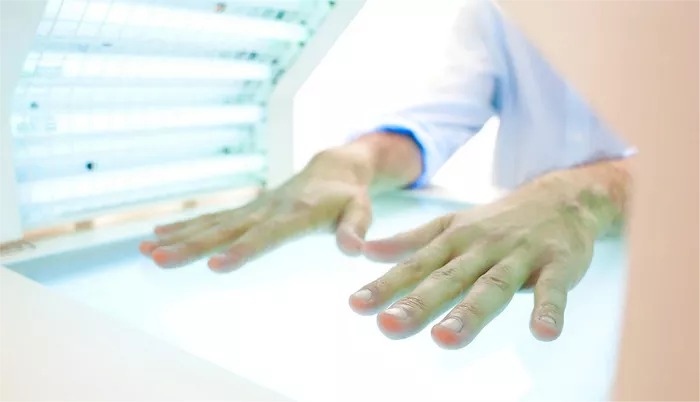Psoriasis is a chronic autoimmune skin condition that affects millions of people worldwide. It is characterized by red, scaly patches on the skin, which can be itchy and sometimes painful. The exact cause of psoriasis is still not fully understood, but it is widely accepted that a combination of genetic, environmental, and immunological factors contribute to its development. Among these factors, stress has been identified as a significant trigger and exacerbating element for many individuals with psoriasis. This article delves into the intricate relationship between stress and psoriasis, exploring the mechanisms by which stress can induce or worsen this skin condition.
Understanding Psoriasis
Pathophysiology of Psoriasis
Psoriasis is primarily driven by an overactive immune system. In a healthy immune system, T-cells (a type of white blood cell) help protect the body from infections. In psoriasis, these T-cells become mistakenly activated and set off other immune responses, leading to rapid skin cell production. Normally, skin cells are produced and shed over a cycle of about a month. In psoriasis, this process speeds up to just a few days, resulting in the accumulation of skin cells that form the characteristic scaly plaques.
Genetic Factors
Genetics play a crucial role in the susceptibility to psoriasis. Research has identified several genes associated with the immune system that are linked to psoriasis. If one parent has psoriasis, there is about a 10% chance of their child developing the condition; if both parents are affected, the risk increases to around 50%.
Environmental Triggers
Environmental factors such as infections, skin injuries, certain medications, and lifestyle choices can trigger or exacerbate psoriasis. Among these, stress is one of the most potent and common triggers.
The Stress-Psoriasis Connection
The Biological Mechanisms of Stress
Stress, particularly chronic stress, has profound effects on the body. When an individual experiences stress, the hypothalamus-pituitary-adrenal (HPA) axis is activated. This axis involves a complex set of interactions between the hypothalamus (a region in the brain), the pituitary gland (located at the base of the brain), and the adrenal glands (situated on top of the kidneys).
- Hypothalamus Activation: When stress is perceived, the hypothalamus releases corticotropin-releasing hormone (CRH).
- Pituitary Response: CRH stimulates the pituitary gland to secrete adrenocorticotropic hormone (ACTH).
- Adrenal Response: ACTH prompts the adrenal glands to produce cortisol, the primary stress hormone.
Cortisol helps the body manage stress by mobilizing energy stores, suppressing non-essential functions (like digestion and growth), and modulating the immune response.
Stress and the Immune System
Cortisol is known for its anti-inflammatory effects; however, chronic stress can dysregulate this process. Prolonged elevation of cortisol can lead to a paradoxical effect where the immune system becomes overactive. Chronic stress also influences the production of other inflammatory cytokines and immune cells, leading to an overall pro-inflammatory state. This is particularly relevant to autoimmune diseases like psoriasis.
The Psychoneuroimmunological Perspective
Psychoneuroimmunology (PNI) is the study of the interaction between psychological processes, the nervous system, and the immune system. PNI research has shown that stress can alter the functioning of the immune system through neural and endocrine pathways. For psoriasis patients, this means that stress can exacerbate immune dysregulation, leading to increased inflammation and accelerated skin cell turnover.
SEE ALSO: The 5 Best Dry Shampoos for Psoriasis
Direct Impact of Stress on Psoriasis
Inflammatory Cytokines
Stress triggers the release of pro-inflammatory cytokines such as tumor necrosis factor-alpha (TNF-α), interleukin-6 (IL-6), and interleukin-1 (IL-1). These cytokines play a crucial role in the pathogenesis of psoriasis by promoting inflammation and the proliferation of keratinocytes (skin cells). Elevated levels of these cytokines have been found in both the skin lesions and the blood of psoriasis patients, indicating their role in disease exacerbation.
HPA Axis Dysfunction
In individuals with chronic stress, the HPA axis can become dysregulated. This dysfunction can lead to either insufficient or excessive cortisol production. Both scenarios can contribute to immune system imbalances that exacerbate psoriasis. Insufficient cortisol fails to suppress inflammation adequately, while excessive cortisol can eventually lead to a diminished immune response due to negative feedback mechanisms.
Oxidative Stress
Chronic stress increases the production of reactive oxygen species (ROS), leading to oxidative stress. Oxidative stress damages cells and tissues and has been implicated in the pathogenesis of various chronic inflammatory conditions, including psoriasis. It can amplify the inflammatory response and further disrupt the skin barrier function, making it more susceptible to psoriasis flares.
Psychological Stress and Behavioral Responses
Stress not only has direct biological effects but also influences behaviors that can worsen psoriasis. Individuals under stress may engage in behaviors such as smoking, alcohol consumption, poor diet, and neglect of skin care, all of which can aggravate psoriasis symptoms. Additionally, stress can lead to poor adherence to treatment regimens, further exacerbating the condition.
Clinical Evidence Linking Stress and Psoriasis
Numerous studies have demonstrated the link between stress and psoriasis. Surveys and clinical research consistently show that a significant number of psoriasis patients report stress as a trigger for their condition.
Epidemiological Studies
1. Survey-Based Studies: Surveys among psoriasis patients reveal that stress is a commonly reported trigger. A study published in the Journal of Investigative Dermatology found that over 60% of patients reported stress as a major trigger for their psoriasis flares.
2. Prospective Studies: Longitudinal studies have shown that individuals experiencing high levels of stress are more likely to develop psoriasis or experience more severe symptoms. For example, a study in Archives of Dermatology followed individuals over several years and found a correlation between high stress levels and the onset of psoriasis.
Experimental Studies
1. Laboratory Research: Experimental studies have demonstrated that stress can induce changes in immune function that are relevant to psoriasis. For instance, exposing mice to stressors leads to increased production of inflammatory cytokines and skin changes reminiscent of psoriasis.
2. Clinical Trials: Interventions aimed at reducing stress, such as cognitive-behavioral therapy (CBT) and relaxation techniques, have been shown to improve psoriasis outcomes. A study published in Psychosomatic Medicine found that patients who participated in stress management programs experienced a significant reduction in psoriasis severity compared to a control group.
Managing Stress to Improve Psoriasis
Stress Reduction Techniques
1. Mindfulness and Meditation: Mindfulness-based stress reduction (MBSR) programs, which include meditation and yoga, have been shown to reduce stress and improve psoriasis symptoms. These techniques help individuals develop a more relaxed and present-focused mindset, reducing the psychological burden of stress.
2. Cognitive-Behavioral Therapy (CBT): CBT is effective in managing stress and improving mental health. By changing negative thought patterns and behaviors, CBT can help psoriasis patients cope better with their condition and reduce the impact of stress on their symptoms.
3. Physical Activity: Regular exercise is a proven stress reliever. It reduces cortisol levels, promotes the release of endorphins (natural mood lifters), and improves overall health. For psoriasis patients, activities such as swimming, walking, and yoga can be particularly beneficial.
Lifestyle Modifications
1. Healthy Diet: A balanced diet rich in anti-inflammatory foods can help manage both stress and psoriasis. Foods high in omega-3 fatty acids (like fish), antioxidants (fruits and vegetables), and whole grains can reduce inflammation and support overall health.
2. Adequate Sleep: Good sleep hygiene is crucial for stress management. Chronic sleep deprivation can elevate stress levels and worsen psoriasis. Establishing a regular sleep routine and creating a restful environment can improve sleep quality.
3. Avoiding Triggers: Identifying and avoiding personal psoriasis triggers, including specific stressors, can help manage the condition. Stress management strategies should be tailored to individual needs and circumstances.
Medical and Therapeutic Interventions
1. Pharmacotherapy: Medications such as biologics, which target specific immune pathways, can be effective in managing severe psoriasis. These treatments can reduce the inflammation and skin cell turnover associated with the condition, providing relief from symptoms.
2. Psychological Support: Access to mental health professionals, such as psychologists and counselors, can be beneficial for individuals struggling with stress and psoriasis. Professional support can provide coping strategies and emotional support.
3. Integrative Approaches: Combining medical treatment with alternative therapies, such as acupuncture and massage therapy, can offer additional benefits for stress reduction and psoriasis management.
Conclusion
The link between stress and psoriasis is well-documented, with stress being a significant trigger and exacerbating factor for many individuals with this chronic skin condition. The mechanisms by which stress influences psoriasis are complex, involving both direct biological effects on the immune system and indirect effects through behavior and lifestyle changes. Understanding the stress-psoriasis connection is crucial for developing comprehensive treatment strategies that address both the physical and psychological aspects of the disease.
Effective management of stress through lifestyle modifications, psychological therapies, and medical interventions can significantly improve the quality of life for psoriasis patients. By adopting a holistic approach that considers the interplay between stress and psoriasis, healthcare providers can offer more effective and personalized care to those affected by this challenging condition.
Related Topics:

























